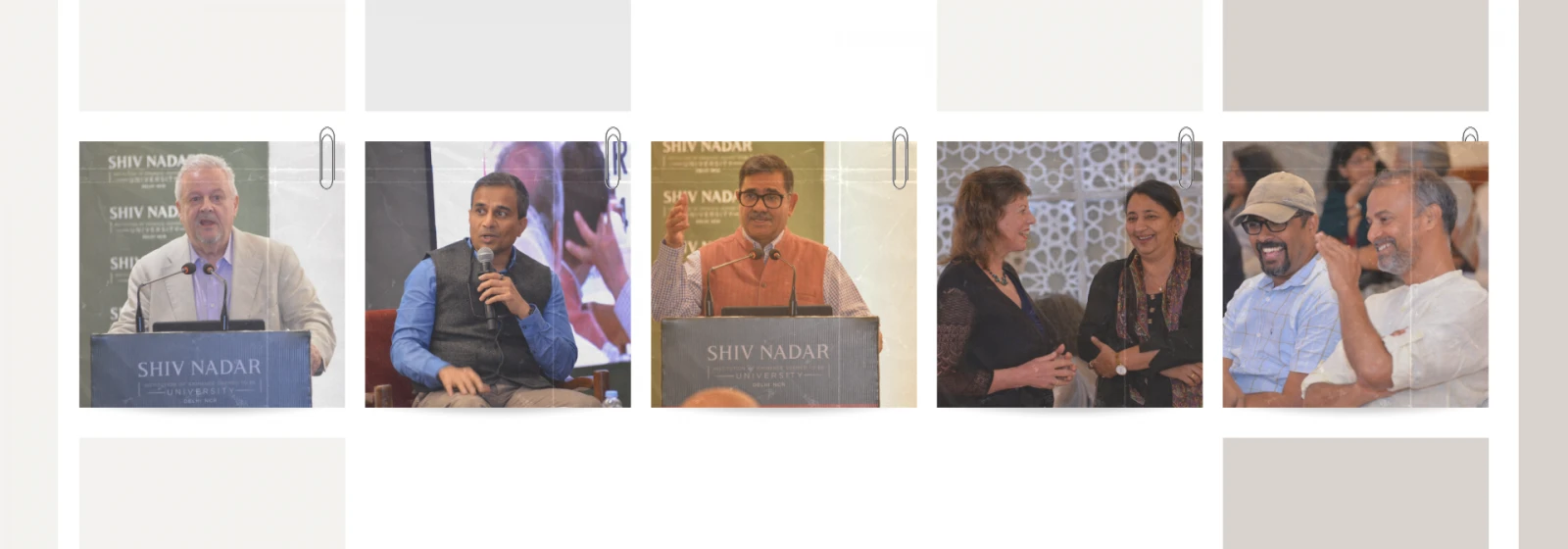Professor Dupré speaks on 'Human Processes' at third edition of Global Futures Lecture Series
Dr. John Dupré, Professor of the Philosophy of Science at the University of Exeter, delivered a lecture on 'Human Processes' at the India Habitat Centre as part of the Global Futures Lecture series on March 21.
In a discourse that navigated the intricate intersections of science, philosophy, and the essence of human existence, Prof. Dupré challenged the audience to rethink conventional perspectives on human cognition, behaviour, and the broader societal implications, encompassing the notions of 'lineage' and 'race'.
In the world of things and processes, Prof. Dupré highlighted how humans are uniquely developmentally plastic and how sociality is influenced by the complex degrees of division of labour.
Departing from the philosophy of atomism to be central to change, Professor Dupré said, "There is a crucial need to bifurcate biology from physics. We don't live in a world of "things" but in one of processes. The causal continuity of the developmental process is linked to the symbiotic linkages between organisms and their surroundings. This is a mutually interdependent process."
He also interrogated the gender divide through the example of colour and posed the critical question: "Why assume the wiring of the brain is a cause rather than an effect of gender difference?"
Opening the session, Dr. Rajat Kathuria, Dean of the School of Humanities and Social Sciences, said the session moderated by Dr. Sanjeev Galande, Dean of the School of Natural Sciences, was proof of the university's multidisciplinary focus.
Replying to a question from Dr. Atul Mishra, Associate Professor and Head of the Department of International Relations and Governance Studies, on how death should be seen as a process in the evolution of the human species, Dr. Dupré said, "Humans are a process with a lifespan, we should not consider ourselves as a machine by replacing parts to extend life. We know that a life span isn't a thousand years. Death is hard to understand in a highly mechanistic world, but if one looks at it as a process, death is natural."
Coming down heavily on the idea of genetic modifications, Professor Dupré said, "It is a process fraught with danger. The process of optimizing humans is complex and questionable."
The university's first Global Futures Lecture saw Professor Sheila Jasnoff, Pforzheimer Professor of Science and Technology Studies at the Harvard Kennedy School, Harvard University, speaking on 'Progress without Progressivism – Engineering Futures in the 21st Century,' in April last year. This was followed by a lecture by Dr. Suresh Sethi, professor, School of Art and Design, University of Illinois, Urbana Champaign on 'The New Landscape: Design in the Times of Dall-E, Midjourney and ChatGPT.
